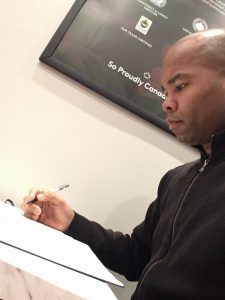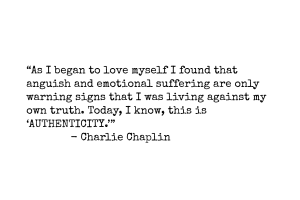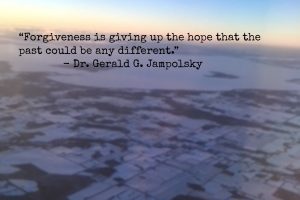“I don’t know why I came,” Ian said, glancing at his watch. “It’s been a goddamn waste of time.”
“Will you mind your language,” Karen said through gritted teeth. “You’re in church, not on Third Street turning a trick.”
Ian’s eyes went wide. “That was uncalled for. I haven’t turned a trick in years. And for the record, we’re in the refectory.”
Karen’s mouth dropped open.
“God, you’re gullible.” Ian rolled his eyes.
“You know…” Karen pursed her lips, but that couldn’t stifle her groan. She locked onto those beautiful but rather deceitful copper blue eyes. “This is an important day and I’d like to get through it without any drama. So, try to behave … and watch your language.”
“Bite me, Karen,” Ian spat. He surveyed the room, not knowing anyone. When he saw the woman wearing an obnoxious wide brim black hat coming towards them, he threw his sister a knowing look.
“Don’t start,” Karen warned. “You know she means well.” Then she stepped forward to accept the hug being offered. “Thanks for being here, Aunt Geraldine.”
“I’m so sorry for your loss,” Geraldine said as the two women pushed apart.
Ian held up his arms in an ‘X’ when his aunt went to embrace him. “I’m good, thanks.”
Karen swatted at her brother. “Ian…”
“What a lovely service,” Geraldine said, lifting her pudgy arms to adjust her hat.
“Why do people say that?” Ian sucked his teeth. “‘What a lovely service.’ Jesus Henry Fucking Christ … it’s not the Fourth of July.”
Karen’s eyes were on fire. “I know you’re upset, but your language is —”
“I’m not upset,” Ian interrupted. “Fuck, I barely knew the man.”
Today mimicked that rainy and humid August day when Ian was six years old. He stood on the covered porch of their three-bedroom bungalow on Marlon Avenue and waved as his father backed the beat-up maroon Oldsmobile out of the driveway. Then that evening, at six thirty, the rest of the family sat down for dinner without his father, who was usually home by six. That night the front door never opened.
He could still see his mother — her eyes red and filled with tears, the Marlboro cigarette pinched between her chapped lips — seated at the kitchen table and calling the local hospitals. He could still hear her sobs as she phoned all their family and friends, and his father’s work colleagues … the ones she could remember. No one knew anything. He sat with his mother at the table, holding her hand, as she kept up that routine for ten days until she realized that Reginald Fairfield wasn’t coming home and didn’t want to be found.
Then, twenty-eight years later, he picked up a message from Karen on his voicemail. “Dad called and wants to meet us,” was all she’d said. After some hedging, Ian agreed to the meet. He and Karen drove to Leaside Memorial Hospital in Melville, a city just fifty miles from Junction where they’d grown up. They were directed to the cancer ward. When Ian walked into Room 114, his body went rigid as his gaze latched onto the copper blue eyes of the frail man seated in the corner chair. A metallic taste swirled in his mouth and he could feel himself trembling.
“Thanks for coming,” Reginald Fairfield said and coughed.
“Do you know what she did?” Ian asked, his voice rising.
Karen touched her hand to Ian’s arm. “Ian —”
Ian jerked his arm away. “Do you know what our mother did when you didn’t come home?”
“Don’t do this,” Karen pleaded.
“She searched and prayed,” Ian said, tears banking in his eyes. “Then she gave up. She … was … broken. And one day, just like you, she went to work and never came back. The only difference was that she got on a bus to Niagara and jumped into the falls. They never found her body.”
“I’m sorry,” Reginald said in a whisper.
“Sorry…” Ian wiped the tears from his eyes. “Are you dying? Is that why you want to see us now?”
Reginald nodded. “I made mistakes and —”
“Just because you’re dying doesn’t mean you get a free pass,” Ian cut in.
“I know I hurt you when I left,” Reginald said soberly. “It was complicated and —”
Ian raised a hand in the air. “Stop. I’m not interested in your excuses. It doesn’t matter why you left. You abandoned us. You don’t know what it’s been like…” He bit down on his lip. “To me, you’ll always be a coward. And, God help me, but I hope you suffer.”
Karen gasped. “Ian!”
“You can’t talk to me like that,” Reginald said, raising his shaking hand in the air and pointing at Ian. “I’m still your father.”
“You’re not my father,” Ian said with control. “He’s been dead to me for twenty-eight years.” He spun around and walked out of the room.
The tightening grip on his arm drew Ian out of the past and back to the present. He shrugged off the questioning looks the two women threw at him. “What? The bastard walked out on us. Don’t expect me to be sad that he’s dead.”
“He was your father,” Geraldine said with emphasis.
“He was never a father to me.” Ian checked the time. “And you know what? I’m done.”
Ian stepped between Karen and his aunt, not looking at either of them, and strutted towards the exit. Why did I even bother? he wondered as he emerged outside, the rain finally beginning to taper off.
He came because he thought it would make a difference, offer some type of closure. But how could it? He knew his heart wasn’t open to forgiveness and wasn’t sure it ever would be.
 Let me back up a moment. I didn’t always know that I wanted to be a writer. That’s because I kept running away from who I really was.
Let me back up a moment. I didn’t always know that I wanted to be a writer. That’s because I kept running away from who I really was. But it was, at twenty-two, when I accepted that I was gay — and more than telling my friends and family a year later — that I’d been set free. That was when I began to love myself. In the most important of ways, I had found my footing. And looking back over the years, I can see that through my writing I’ve tried to be of service by helping people get to that other side of forgiveness. That place where we [I] can forgive ourselves [myself] and each other for the past that was, moving along conscious and alive in the present moment.
But it was, at twenty-two, when I accepted that I was gay — and more than telling my friends and family a year later — that I’d been set free. That was when I began to love myself. In the most important of ways, I had found my footing. And looking back over the years, I can see that through my writing I’ve tried to be of service by helping people get to that other side of forgiveness. That place where we [I] can forgive ourselves [myself] and each other for the past that was, moving along conscious and alive in the present moment. I write for a lot of reasons. Mainly, I like to explore, through the lens of a personal story, the aspirations of the individual against those of the collective. I hope to challenge the reader’s, as well as my own, belief system. It’s not just about asking, for example, “What are we doing here?” but also “How did we get where we are?” and “Could we get here another way?”
I write for a lot of reasons. Mainly, I like to explore, through the lens of a personal story, the aspirations of the individual against those of the collective. I hope to challenge the reader’s, as well as my own, belief system. It’s not just about asking, for example, “What are we doing here?” but also “How did we get where we are?” and “Could we get here another way?”